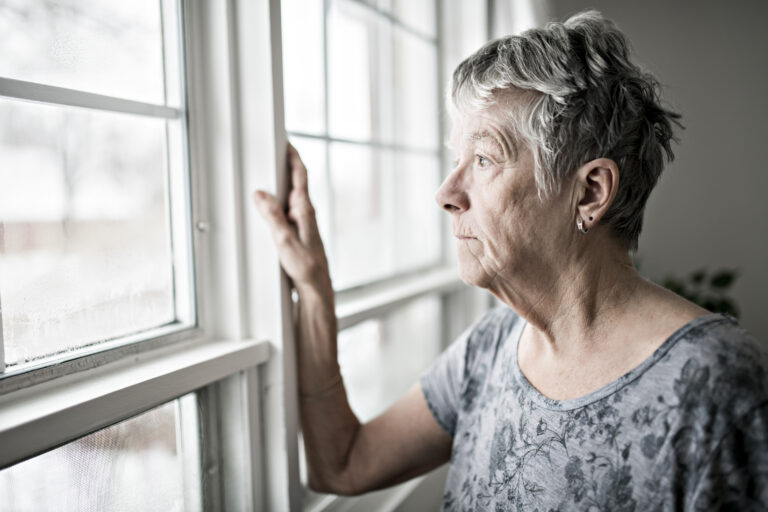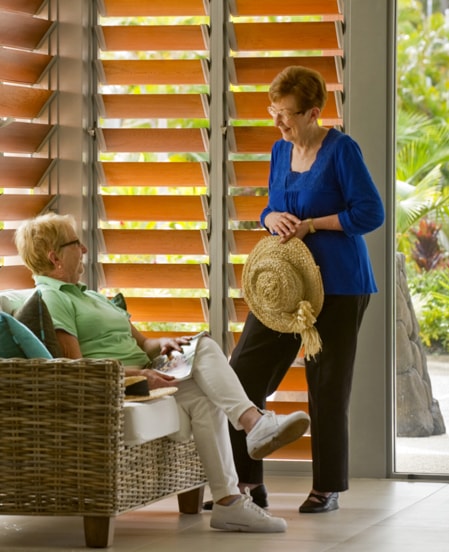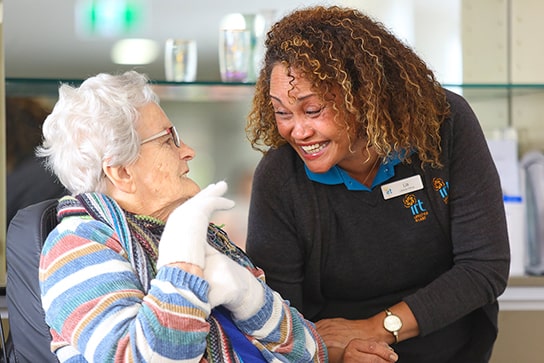How to deal with loneliness
One in four Australians report feeling lonely each week, according to the 2018 Australian Loneliness Report

One in two sometimes or always feel alone and 30 per cent of people say they don’t belong to a friendship group, the report found.
Loneliness is part of a growing global problem. The UK made headlines around the world when it appointed its first Minister for Loneliness on the back of a 2017 report by the Jo Cox Loneliness Commission that showed nine million of the country’s 67 million people feel lonely some or all of the time.
And Japan has followed suit, announcing in February 2021 the appointment of a Minister for Loneliness in a bid to curb a growing rate of suicide.
Isolation and loneliness
Oftentimes the terms loneliness and social isolation are used interchangeably, but there are notable differences between the two.
“Social isolation is defined as a lack of contact with other individuals, while loneliness is the feeling that one is emotionally disconnected from others. In essence, a person can be in the presence of others and still feel lonely,” an article in Medical News Today explains.
Seniors and loneliness
The good news for older Australians is that people over 65 feel less lonely than their younger counterparts, according to the Loneliness Report. Nevertheless, combatting loneliness in seniors is still important as nearly half (46%) of older adults still feel they lack companionship at least some of the time.
Major life events – retirement, the death of a partner, children leaving home or moving to a new home away from family and friends – can also trigger loneliness.
So what can be done to deal with loneliness?
Before his death in 2018, John Cacioppo, the Tiffany and Margaret Blake Distinguished Service Professor at the University of Chicago, had studied loneliness for close to three decades.
Three steps to overcome loneliness
In a thought-provoking TEDx Talk, he recommended three steps to overcome loneliness:
- Acknowledge what you are feeling.
- Understand what loneliness does to your body and mind.
- Respond by forming and strengthening connections.
Acknowledge what you are feeling
Prof Cacioppo argued that individualism and self-sufficiency have become so valued in society, they can push individuals to become isolated and then to refuse to acknowledge loneliness when they experience it.
“You don’t hear people talk about feeling lonely,” Prof Cacioppo said, “and that’s because loneliness is stigmatised, the psychological equivalent of being a loser in life or a weak person, and this is truly unfortunate, because it means we’re more likely to deny feeling lonely, which makes no more sense than denying we feel hunger, thirst, or pain.”
Denial, Prof Cacioppo argued, exacerbates feelings of loneliness and may lead to counterproductive strategies, such as seeking further isolation.
So the first step to combatting this negative state is to recognise that what you’re feeling is loneliness.
Understand what loneliness does to your body and mind
Once you’ve acknowledged you are lonely, it is important to understand the serious impact it can have on your physical and psychological health, as well as your behaviour.
The Australian Loneliness Report found lonely Australians have worse physical and mental health, and are more likely to experience depression.
In fact, according to a report by Relationships Australia An Epidemic of Loneliness 2001-2017, loneliness has the same detrimental effect as smoking 15 cigarettes a day.
The report cites a US study that found that loneliness can be as dangerous as obesity, lack of physical activity, substance abuse and poor mental health in terms of being a risk factor for premature death.
Understanding the gravity of loneliness can be a powerful motivator to take the next step.

Respond by forming and strengthening connections
The best way to overcome loneliness is to take deliberate action to form and strengthen connections, which can take different forms.
It’s important to form an intimate connection, which involves building a relationship with an individual you trust and are willing to confide in.
The Better Health Channel describes intimacy as a “feeling of being close, and emotionally connected and supported”.
“It means being able to share a whole range of thoughts, feelings and experiences that we have as human beings. It involves being open and talking through your thoughts and emotions, letting your guard down (being vulnerable), and showing someone else how you feel and what your hopes and dreams are,” the channel says.
More ways to feel less lonely
Stay in touch
Simply sharing good times with friends and family without any distractions is another important way to connect. Nowadays that can mean consciously putting aside your phone to have a proper conversation with those around you, share a meal together or engage in a fun activity.
In the UK, the Campaign to End Loneliness launched Be More Us in 2018, noting that “we all need a sense of belonging, no matter how old we are”.
The movement celebrates small moments of connection, like saying hi to someone in your local shop or smiling at someone on the bus.
Be neighbourly
Love Thy Neighbour was a popular British sitcom in the 1970s but it seems that in recent decades we’ve lost touch with our neighbours.
The Australian Loneliness Report found one third of Australians have no neighbours they see or hear from on a monthly basis, nearly half don’t have a neighbour to call on for help and 70% say they have no neighbours they’d talk to about private matters.
Spending time with our neighbours can be a great way to be more social and feel less lonely. It can start by getting active and taking a morning or evening walk and saying hello to neighbours you meet or even stopping for a chat. Offer them simple help like putting out their garbage bins or walking their dog if they’re going to be away. Being physically active like taking a morning walk can even improve mental health and reduce stress and anxiety.
You can be bold and invite your new friend to call in for a cuppa, to chat, share tips on your gardening or to watch something on TV you have a common interest in. If you’re not at ease making the first move face-to-face, drop an invitation in their letterbox and don’t forget to include your phone number.
The are also plenty of community pages on social media that could be a great place to connect with like minded people.
Discover strategies for making and maintaining connections.
Become part of something bigger
One of the best ways to overcome loneliness is to become part of something bigger than yourself. There are endless volunteering groups for people to join whatever your interest and the benefits are many.
You can check out local or national non-profit organisations to identify something you’d be interested in. Volunteering Australia is a great place to start your research online. Each state and territory has their own body that can help you find opportunities in fields ranging from animal welfare to migrant services and museums and heritage.
For most people, anything you can do to help others will make you feel more connected and less lonely, as well as bring great satisfaction and joy.
Volunteer with IRT
Age Matters is an initiative of IRT Group that tackles homelessness, ageism and social isolation of seniors head on. As part of tackling social isolation, Age Matters oversees IRT’s volunteering program, working with hundreds of volunteers who regularly help our retirement village and aged care centre residents.
Our volunteers make a difference in the lives of seniors by engaging with them in a range of ways; from support with serving food and transport, to social activities, arts and crafts and engagement activities.
If you’re interested in becoming an IRT volunteer you can register here.
Stay connected with IRT
IRT offers many opportunities to make new friends through living in our retirement villages, joining us on home care bus trips and becoming an IRT volunteer through the Age Matters volunteer network. Break out of your comfort zone, try something new and meet new people. Don’t forget, most people will be in the same position as you, wanting to make friends or reach out but not knowing how to take the first step.
You may also like
Choosing an Aged Care Centre: What to consider
Moving from your home into a residential aged care centre can be a rewarding experience for you or your loved one.
Downsizing your home for retirement: where to begin
Have you been thinking about downsizing your home? We help you make sense of this life-changing decision that can reap so many benefits as you…


